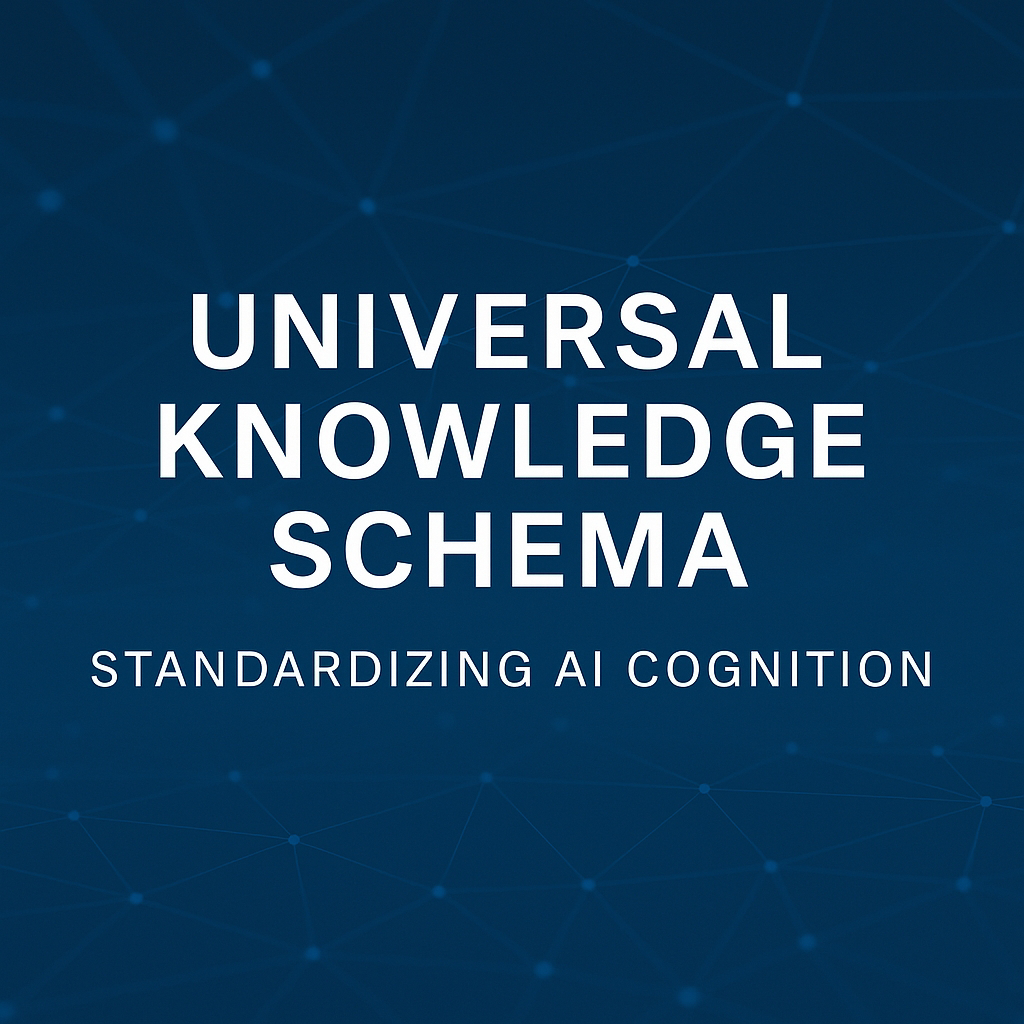AI STANDARDIZING AI COGNITION
Standardizing AI Cognition: Building a Universal Framework
In a world increasingly driven by artificial intelligence, the standardization of AI cognition is not merely a technical necessity but a profound philosophical and societal challenge that we must address.
Why Standardization Matters
First, AI cognition must be based on common frameworks of reasoning, logic, ethics, and perception. Without these, we risk divergent AI behaviors, leading to unpredictable and possibly dangerous outcomes.
Second, standardization does not mean suppressing diversity in AI solutions. Instead, it ensures that diverse AI systems remain interoperable, understandable, and controllable by humans and institutions worldwide.
The Unicode Analogy: A Universal Schema for Knowledge
Drawing inspiration from the success of Unicode in standardizing character representation across languages, a similar universal schema could serve to standardize AI cognition across different domains and applications.
Proposed Model:
D = {All domain data}
U = Universal schema ("Unicode for Knowledge")
P = {All pipeline components}
O = Output (knowledge, answers, models, etc.)
Encoding:
∀ d ∈ D: d → U
Processing:
∀ p ∈ P: p(U) → O
Interoperability:
(U ↔ U) ⇒ ∀ pipeline, ∀ domain: integration seamless
Losslessness:
d → U → d' ⇒ d ≈ d' (∴ min(loss))
Scalability:
|D| ↑ ⇒ system_robustness ↑, integration_cost ↓
Universal Transferability:
U_shared ⇒ collaboration, reuse ↑
Therefore:
U = ∑(D) | standardized
LLM adaptability, scalability, and robustness ↑
Challenges and Ethical Considerations
Standardizing cognition is not just about technical formats. It carries ethical responsibilities, since cognition reflects intentions, goals, and a form of awareness. We must ensure that cognitive standards align with universal human values while allowing cultural diversity to thrive safely.
Conclusion
Establishing a universal schema for AI cognition is a vital step toward building adaptable, scalable, interoperable, and ethically aligned artificial intelligence. Just as Unicode unified global communication, a universal knowledge framework can unify AI reasoning while protecting diversity and innovation.
This article was written by a researcher passionate about the convergence of cognitive sciences, AI, and knowledge systems. With a background in machine learning, natural language processing, and epistemology, the author advocates for more robust, scalable, and ethical architectures for the future of artificial intelligence.
The technical information, code snippets, designs, and methodologies presented herein are provided "as is" without any warranties, express or implied, including but not limited to warranties of merchantability, fitness for a particular purpose, or non-infringement. Implementation and use of the information are at the user’s sole risk.
Unauthorized reproduction, redistribution, or publication of any part of this material is strictly prohibited without explicit prior written consent. Always verify and test in a controlled environment before applying any technical guidance.




Comments
Post a Comment